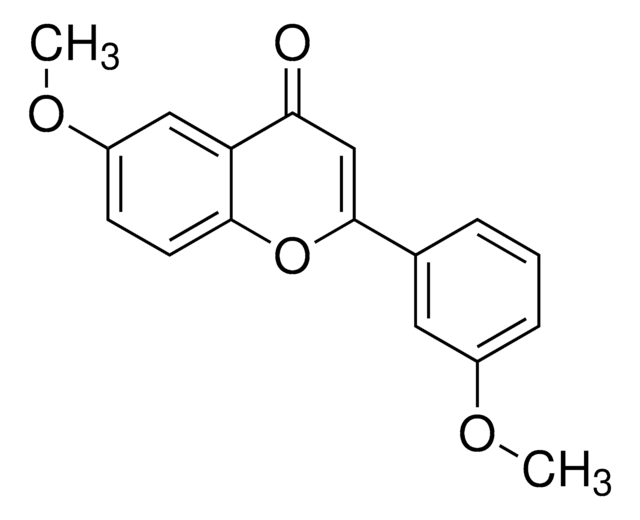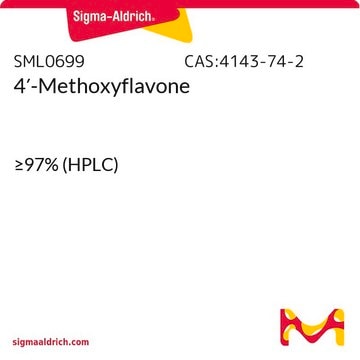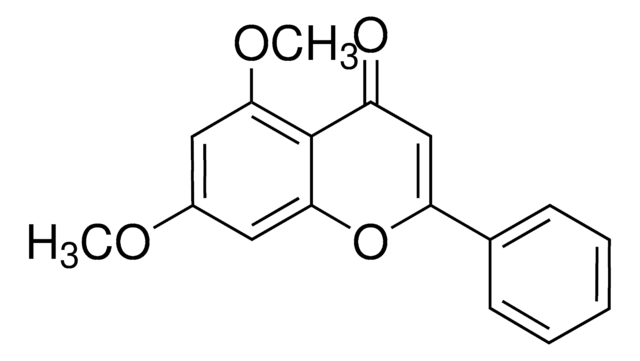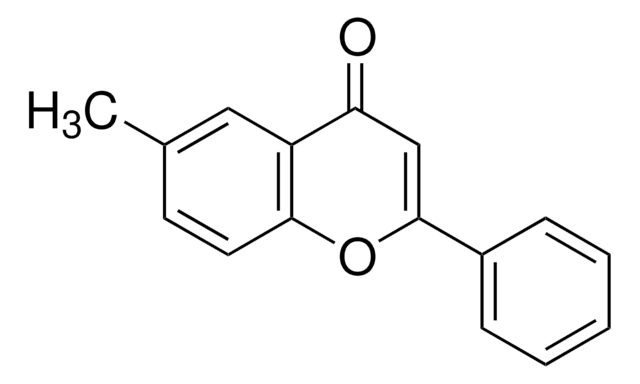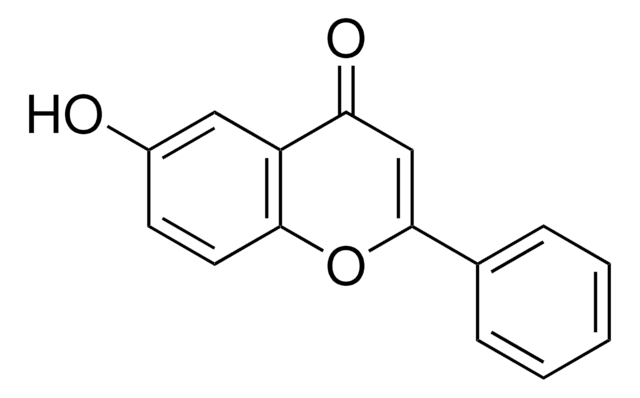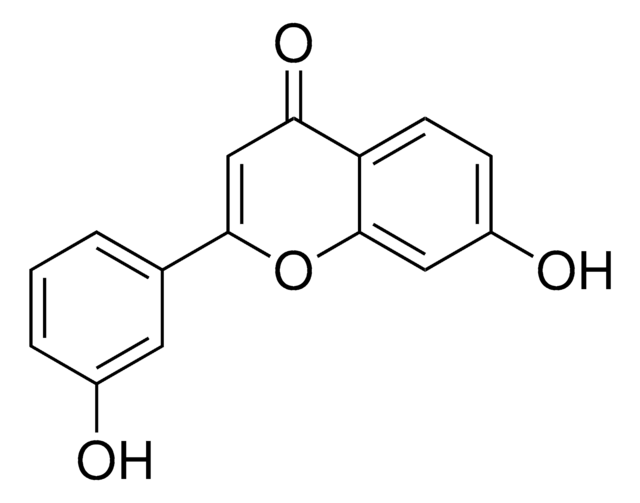419737
6-Methoxyflavone
99%
About This Item
Productos recomendados
Quality Level
assay
99%
form
solid
mp
163-165 °C (lit.)
functional group
ketone
phenyl
SMILES string
COc1ccc2OC(=CC(=O)c2c1)c3ccccc3
InChI
1S/C16H12O3/c1-18-12-7-8-15-13(9-12)14(17)10-16(19-15)11-5-3-2-4-6-11/h2-10H,1H3
InChI key
XZQLSABETMKIGG-UHFFFAOYSA-N
Gene Information
rat ... Gabra2(29706)
General description
Application
- As internal standard for the analysis of polyphenolic content of in-vitro-cultured chestnut shoots.
- Synthesis of biflavonoids, rac- and meso-6,6-dimethoxy-2,2-biflavanones.
- As internal standard for the separation of phenolic compounds in the apricot tissue by HPLC.
Storage Class
11 - Combustible Solids
wgk_germany
WGK 2
flash_point_f
Not applicable
flash_point_c
Not applicable
ppe
Eyeshields, Gloves, type N95 (US)
Elija entre una de las versiones más recientes:
Certificados de análisis (COA)
¿No ve la versión correcta?
Si necesita una versión concreta, puede buscar un certificado específico por el número de lote.
¿Ya tiene este producto?
Encuentre la documentación para los productos que ha comprado recientemente en la Biblioteca de documentos.
Nuestro equipo de científicos tiene experiencia en todas las áreas de investigación: Ciencias de la vida, Ciencia de los materiales, Síntesis química, Cromatografía, Analítica y muchas otras.
Póngase en contacto con el Servicio técnico